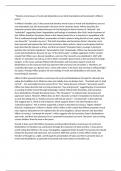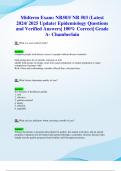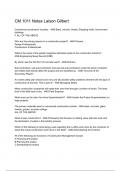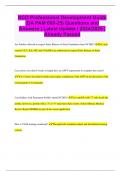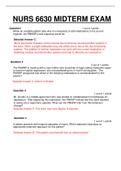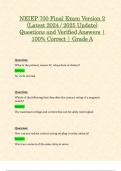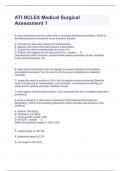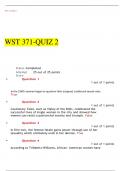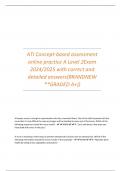Essay
A* English Literature Essay on Revolt and Disobedience in Paradise Lost
- Institution
- WJEC
This A* essay is an answer to a previously used exam question from the Eduqas exam board, on Paradise Lost. It is great guide for how to set out an answer to the Paradise Lost Essay question in the exam.
[Show more]
